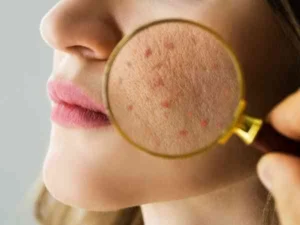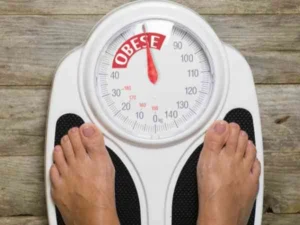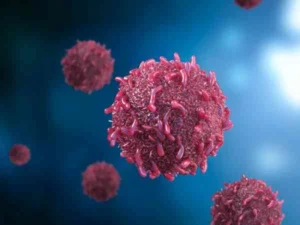Overview of chronic kidney disease (CKD)
With 17% of the world’s population living in India, CKD presents an important public health problem due to the high prevalence, morbidity and mortality of the disease. Chronic kidney disease (CKD) is a condition where the kidneys slowly lose their ability to function properly over time. The kidneys play a key role in filtering waste, balancing fluids, and maintaining healthy levels of various minerals in the body. When they start to fail, these vital processes are affected, which can lead to serious health problems.

Understanding CKD is important because it can have a big impact on a person’s health. Symptoms like feeling very tired, swelling in the legs or feet, and changes in how often you need to pee can be signs of CKD. However, these symptoms are often overlooked or mistaken for other issues, so it’s crucial to recognize them early.
CKD is divided into five stages, from mild damage in Stage 1 to kidney failure in Stage 5. Knowing which stage you’re in can help doctors create the best treatment plan for you. Common causes of CKD include diabetes, high blood pressure, and certain infections, so managing these conditions can help prevent kidney disease. Let us explore more about this condition.
What do you mean by Chronic Kidney Disease?
Chronic Kidney Disease (CKD) is when the kidneys gradually lose their ability to work properly over time. Unlike sudden kidney problems, CKD develops slowly and can eventually lead to kidney failure if not managed. It means the kidneys can’t filter waste from the blood as well as they should.

The kidneys are two organs in the lower back that are very important for your health. They filter about 50 gallons of blood each day, removing waste and extra fluids to make urine. They also help control blood pressure, balance important chemicals in the body, and keep bones strong.
When CKD occurs, these functions don’t work as well, which can lead to health issues like anemia, bone problems, and heart disease. Catching CKD early and managing it well can help slow down its progress and prevent serious health issues. Regular doctor visits and a healthy lifestyle are key to managing CKD and staying healthy.
Chronic Kidney Disease Symptoms

Early Symptoms:
- Tiredness: Feeling very tired often.
- Peeing More: Going to the bathroom more often than usual.
- Swelling: Swelling in ankles or feet.
- Urine Changes: Urine may look dark or frothy.
Advanced Symptoms:
- Feeling Sick: Nausea and vomiting.
- Not Hungry: Less interest in eating.
- Losing Weight: Unplanned weight loss.
- More Swelling: Swelling can get worse in legs, hands, or around eyes.
- Breathing Problems: Difficulty breathing because of fluid in the lungs.
For Women:
- Anemia Effects: More tiredness and dizziness.
- Worsened Symptoms: Hormonal changes can make symptoms like swelling or fatigue worse.
Causes of Chronic Kidney Disease

Main Causes:
- Diabetes: High blood sugar from diabetes can damage the kidneys over time.
- High Blood Pressure: Extra strain from high blood pressure can harm the kidneys.
- Glomerulonephritis: Inflammation in the kidneys’ filtering parts can lead to CKD.
Lifestyle Factors:
- Unhealthy Diet: Eating too much salt, processed foods, and sugary drinks can hurt your kidneys.
- Smoking: Smoking damages blood vessels and reduces blood flow to the kidneys.
- Lack of Exercise: Not getting enough exercise can lead to conditions like diabetes and high blood pressure, which can cause CKD.
Genetic and Other Causes:
- Family History: If kidney disease runs in your family, you might be at higher risk.
- Autoimmune Diseases: Conditions like lupus can cause kidney inflammation.
- Infections: Some kidney infections can contribute to CKD if not treated quickly.
- Drug Use: Using certain medications or drugs for a long time can harm your kidneys.
Stages of Chronic Kidney Disease

Stage 1: Mild CKD
- Description: Kidneys are a bit damaged but still work normally.
- Markers: Kidney function is normal or slightly reduced. Urine tests might show small amounts of protein.
- Detection: GFR is 90 or higher. Early treatment can help prevent the disease from getting worse.
Stage 2: Mild CKD
- Description: Kidneys are mildly damaged with a slight decrease in function.
- Markers: GFR is between 60 and 89. Urine tests show kidney damage.
- Detection: GFR between 60 and 89. Monitoring is important to slow down the progression.
Stage 3: Moderate CKD
- Description: Noticeable loss of kidney function.
- Markers: GFR is between 30 and 59. Symptoms and complications become more apparent.
- Detection: GFR between 30 and 59. More careful management is needed to avoid further decline.
Stage 4: Severe CKD
- Description: Severe loss of kidney function with significant symptoms.
- Markers: GFR is between 15 and 29. Symptoms like swelling and anemia are common.
- Detection: GFR between 15 and 29. Preparing for treatments like dialysis or a kidney transplant is usually needed.
Stage 5: End-Stage Renal Disease (ESRD)
- Description: Kidneys are nearly or completely unable to function.
- Markers: GFR is less than 15. Severe symptoms require dialysis or a kidney transplant.
- Detection: GFR less than 15. Immediate treatment is necessary to manage life-threatening problems.
First Signs of Kidney Disease

Subtle Signs and Symptoms:
- Tiredness: Feeling very tired or weak for no clear reason.
- Urination Changes: Peeing more or less than usual, or noticing your urine is frothy or dark.
- Swelling: Swelling in ankles, feet, or around the eyes.
- Itching: Unexplained itching on your skin.
- Appetite Loss: Not feeling hungry or having a change in taste.
- Sleep Issues: Trouble sleeping or feeling restless at night.
- Back Pain: A dull ache in the lower back or sides.
Importance of Regular Health Screenings:
- Early Detection: Catching these early signs can help find kidney problems before they get serious.
- Monitoring Function: Regular check-ups can test how well your kidneys are working through blood and urine tests.
- Preventing Problems: Early treatment can slow down or stop kidney disease from getting worse.
- Managing Risks: Regular screenings help manage conditions like diabetes and high blood pressure that can lead to kidney disease.
Treatment Options for Chronic Kidney Disease

- Managing Symptoms: Helping with issues like tiredness, swelling, and itching.
- Slowing Down the Disease: Trying to keep CKD from getting worse.
- Preventing Problems: Avoiding complications like high blood pressure, anemia, and bone issues.
Medications:
- Blood Pressure Pills: To control high blood pressure and protect the kidneys.
- Water Pills (Diuretics): To help get rid of extra fluid and reduce swelling.
- Anemia Medicine: To help with low red blood cell counts.
Dialysis:
- Hemodialysis: A machine filters waste from your blood if your kidneys can’t.
- Peritoneal Dialysis: A special fluid is used to clean the blood through your abdomen.
- Kidney Transplant: Replacing damaged kidneys with a healthy one from a donor.
Lifestyle Changes:
- Diet: Eating healthy foods low in salt, potassium, and phosphorus, and managing protein intake.
- Exercise: Staying active to improve overall health and manage conditions like diabetes and high blood pressure.
- Managing Other Health Issues: Controlling conditions like diabetes and high blood pressure to protect your kidneys.
These treatments and lifestyle changes can help manage CKD and improve your quality of life.
Signs of Dying from Kidney Failure

Talking about the end-of-life symptoms with kidney failure is sensitive. As the kidneys stop working, here are some signs that may show the body is nearing the end of life:
Symptoms:
- Extreme Tiredness: Feeling very weak and drained of energy.
- Little to No Urine: Producing very little or no urine.
- Confusion: Trouble thinking clearly or being confused.
- Difficulty Breathing: Feeling short of breath or having trouble breathing.
- Swelling: Noticeable swelling in legs, arms, or face.
- Feeling Sick: Ongoing nausea and vomiting.
- Loss of Appetite: Not wanting to eat or drink anything.
Palliative Care Options:
- Pain Relief: Medicines to help with pain and discomfort.
- Symptom Relief: Treatments to ease symptoms like nausea and swelling.
- Emotional Support: Help for both patients and families to deal with stress and emotions.
- Comfort Measures: Making the environment as comfortable as possible, focusing on quality of life.
Support for Patients and Families:
- Hospice Care: Special care aimed at keeping patients comfortable in their final days.
- Family Help: Support for family members to understand and cope with the situation.
- Spiritual Care: Guidance and support based on personal beliefs.
Living with Chronic Kidney Disease

Quality of Life:
- Managing Symptoms: Taking your medicines as prescribed and watching for any symptoms to stay comfortable.
- Diet and Nutrition: Eating a special diet that helps keep your kidneys working well and supports your overall health.
- Regular Check-ups: Visiting your doctor regularly to check how your kidneys are doing and adjust treatment if needed.
- Emotional Health: Handling stress and anxiety with the help of counseling or support groups.
Coping Strategies:
- Learning: Understanding CKD and how to manage it so you can make informed decisions about your care.
- Routine: Keeping a daily schedule for your medicines, diet, and other lifestyle changes.
- Relaxation: Using techniques like deep breathing, meditation, or yoga to reduce stress and improve your mood.
- Support: Connecting with family, friends, and support groups for emotional and practical help.
Support Networks and Resources:
- Healthcare Team: Working with doctors, dietitians, and nurses for personalized care.
- Support Groups: Joining local or online groups where you can meet others with CKD and share experiences.
- Educational Resources: Finding information from kidney health organizations to help you manage CKD.
- Counseling Services: Getting professional help to support your emotional well-being.
Summing up,
Early signs of Chronic Kidney Disease (CKD) include feeling very tired, changes in how much you pee, and swelling. As CKD gets worse, symptoms like trouble breathing and feeling sick can appear. Spotting the early signs of CKD and getting regular check-ups can help manage the disease better. Following your treatment plan, eating a healthy diet, and staying on top of your health can help you feel better and slow down CKD. There is hope for better treatments and possibly even cures for CKD due to ongoing research and medical advancements. Improved treatments will help people with CKD live better lives.







